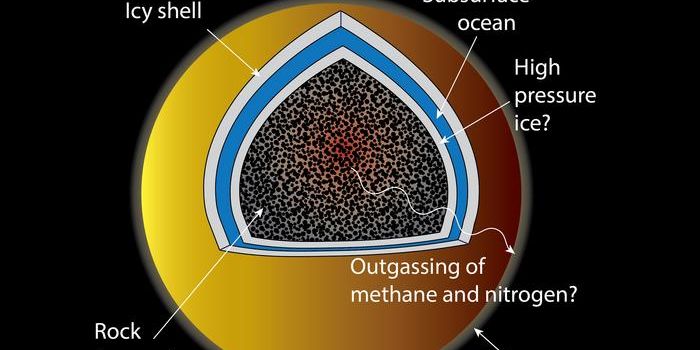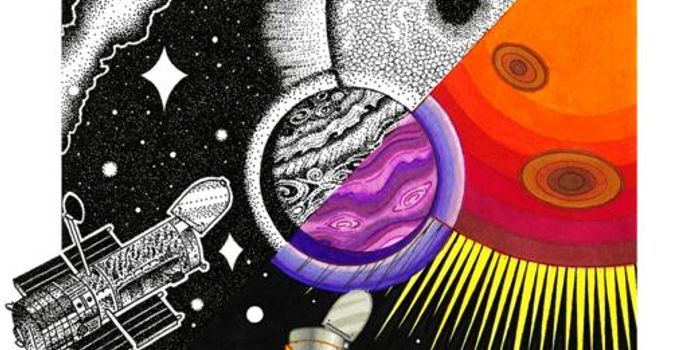Never-Found-Before Molecule Detected in Titan's Atmosphere
Astronomers have detected Cyclopropenylidene (C3H2) on Titan, one of Saturn's 53 confirmed moons. While the molecule has been known to exist in very strict lab conditions, this is the first time it has been detected inside an atmosphere.
Cyclopropenylidene does not last long in regular atmospheric conditions. This is because it reacts very quickly and easily with other molecules to form compounds. As such, aside from strict lab conditions, the only other place it has been known to remain stable is in interstellar space, where it does regularly interact with other compounds.
Titan's atmosphere, of course, is very different from interstellar space. Predominantly composed of nitrogen, it hosts hydrocarbon clouds ad lakes. Four times thicker than Earth's atmosphere and a known 'treasure trove' for organic chemical activity, astronomers also suspect that under its surface exists a large ocean of saltwater.
The molecule was found on Titan's atmosphere by a team of astronomers using the Atacama Large Millimeter/Submillimeter Array (ALMA) in Chile. Its unusual chemical signature was found in the moon's upper atmosphere.
Initially shocked by the finding, the astronomers say that the 'thinness' of Titan's atmosphere likely contributed to Cyclopropenylidene's ability to remain intact. However, why it appears in Titan's atmosphere and not in other atmospheres remains unknown.
Cycloproenlidene is particularly interesting for scientists due to its structure as a ring molecule, consisting of three carbon atoms linked together like a ring. While not known to have a biological function itself, the nucleobases of DNA and RNA are based on such molecular rings.
"We're trying to figure out if Titan is habitable," says geologist Rosaly Lopes of NASA's Jet Propulsion Laboratory. "So we want to know what compounds from the atmosphere get to the surface, and then, whether that material can get through the ice crust to the ocean below, because we think the ocean is where the habitable conditions are."
Sources: Science Alert, The Astronomical Journal









